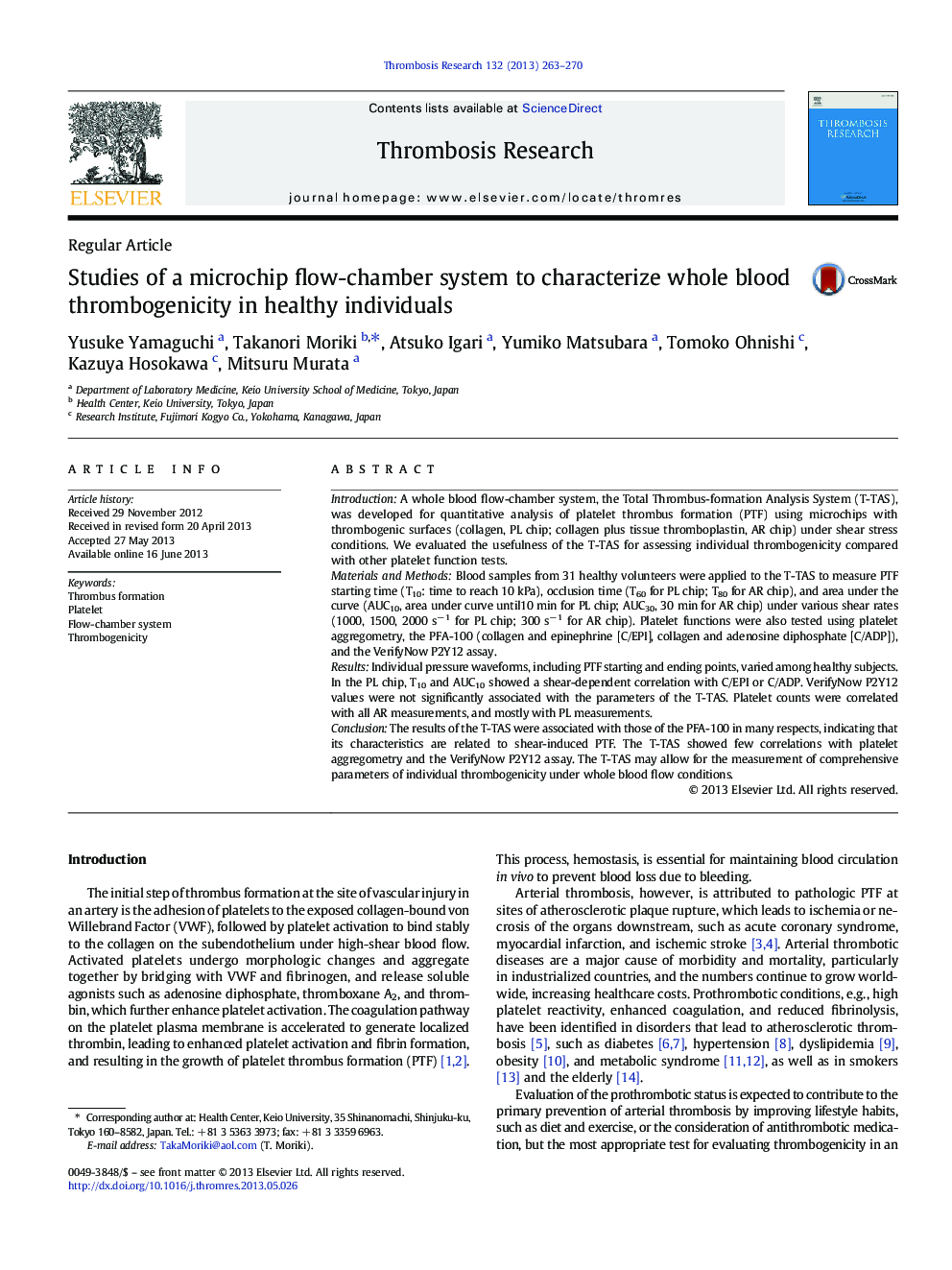| Article ID | Journal | Published Year | Pages | File Type |
|---|---|---|---|---|
| 6002117 | Thrombosis Research | 2013 | 8 Pages |
IntroductionA whole blood flow-chamber system, the Total Thrombus-formation Analysis System (T-TAS), was developed for quantitative analysis of platelet thrombus formation (PTF) using microchips with thrombogenic surfaces (collagen, PL chip; collagen plus tissue thromboplastin, AR chip) under shear stress conditions. We evaluated the usefulness of the T-TAS for assessing individual thrombogenicity compared with other platelet function tests.Materials and MethodsBlood samples from 31 healthy volunteers were applied to the T-TAS to measure PTF starting time (T10: time to reach 10 kPa), occlusion time (T60 for PL chip; T80 for AR chip), and area under the curve (AUC10, area under curve until10 min for PL chip; AUC30, 30 min for AR chip) under various shear rates (1000, 1500, 2000 sâ 1 for PL chip; 300 sâ 1 for AR chip). Platelet functions were also tested using platelet aggregometry, the PFA-100 (collagen and epinephrine [C/EPI], collagen and adenosine diphosphate [C/ADP]), and the VerifyNow P2Y12 assay.ResultsIndividual pressure waveforms, including PTF starting and ending points, varied among healthy subjects. In the PL chip, T10 and AUC10 showed a shear-dependent correlation with C/EPI or C/ADP. VerifyNow P2Y12 values were not significantly associated with the parameters of the T-TAS. Platelet counts were correlated with all AR measurements, and mostly with PL measurements.ConclusionThe results of the T-TAS were associated with those of the PFA-100 in many respects, indicating that its characteristics are related to shear-induced PTF. The T-TAS showed few correlations with platelet aggregometry and the VerifyNow P2Y12 assay. The T-TAS may allow for the measurement of comprehensive parameters of individual thrombogenicity under whole blood flow conditions.
